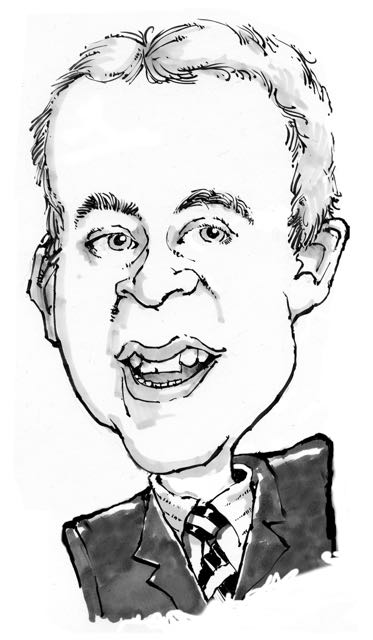“The Case of the Offensive Comments at the Elementary School Picnic: A school’s obligations when a school employee makes offensive comments.”

By Clint Campion of Sedor, Wendlandt, Evans & Filippi, LLC
Part eight of a series on interacting with the world outside of the schoolhouse gates.
THE CASE
Last week, the elementary school held an end-of-year picnic at a local park. Parents and volunteers assisted school staff with the picnic. This week, a parent who assisted with the picnic asked to meet with the principal. At a meeting in the principal’s office, the parent complained that a teacher made comments to her of a sexual nature which made her uncomfortable. The parent explained that she had volunteered in the teacher’s classroom throughout the school year. She described that the teacher made comments of a sexual nature during the school year nature which made her uncomfortable in her child’s classroom.
THE ISSUES
First, the principal must let the complaining parent know that the district will take steps to investigate her complaint to protect her from offensive sexual comments by a teacher. Many districts have policies that specifically prohibit sexual harassment against third parties in addition to staff and students. Under these policies, “third parties” include school volunteers, parents, school visitors, contractors or others engaged in school business. In the absence of a specific district policy protecting third parties from sexual harassment, school districts must still take steps to protect third parties from sexual harassment.
Second, the principal must ensure the parent’s complaint is promptly and thoroughly investigated. Depending on the district’s size and resources, the principal may conduct the investigation herself or she may ask the district’s human resources department or legal counsel to investigate the complaint. Even if the complaining parent asked the principal not to investigate the complaint or take any action, the principal would still be obligated to ensure that the complaint is investigated.
Third, the principal must maintain the confidentiality of the complaint and the investigation. While it may be difficult during the investigation, the principal must nonetheless take reasonable steps to maintain confidentiality regarding the complaining parent, the complaint and the teacher.
Fourth, the principal must take reasonable steps to ensure is no retaliation against the complaining parent by the school or the teacher. For example, the principal should not prevent the parent from volunteering in the classroom or during school-sponsored activities as a response to the complaint. The principal should inform the complaining parent to notify her if there is any inappropriate contact from the teacher.
THE LAW
A school employee may not subject another staff member, student or protected third party to unwelcome verbal or physical conduct of a sexual nature which creates an offensive or abusive environment. AS 18.80.220(a)(1); French v. Jadon., Inc. 911 P.2d 20 (Alaska 1996).
Once a school official receives a complaint from a third party that a school employee has engaged in unwelcome conduct of a sexual nature which creates an offensive or abusive environment, the school official must take remedial action. Norcon, Inc. v. Kotowski, 971 P.2d 158, 171 (Alaska 1999).
The school official must immediately take action that is reasonably calculated to end the unwelcome sexual conduct without adversely affecting the complaining person’s employment or business with the school. VECO, Inc. v. Rosebrock, 970 P.2d 906, 910 (Alaska 1999).
If the school official fails to take remedial action and the unwelcome sexual conduct by the school employee continues, the school district could be liable for sexual harassment which created a hostile work environment. VECO, 970 P.2d at 912.
THE ANSWER
The principal must promote a school environment free from sexual harassment. In response to the parent’s complaint, the principal should immediately consult with the district’s human resources department and legal counsel to develop a plan to investigate the complaint. Upon completion of the investigation, the principal will have to determine whether to impose corrective or disciplinary action against the teacher.
Read the entire series on Interacting with the Outside World – School District Style:
Part one: Panic is not a Plan – Crisis Communications for School Districts by Clint Campion
Part two: Crisis Management: The Case of the Bickering Parents by Lea Filippi
Part three: Crisis Management: The Case of the Aggressive OCS Investigator by Allen Clendaniel

Part four: Crisis Management: “Shaken – Not Stirred …The Day the Open Meetings Act Collided with a 7.0 Earthquake” by John Sedor

Part five: Crisis Management: The Case of the Ominous Essay by Lea Filippi

Part six: Crisis Management: “Parallel Worlds: The Intersection between Schools and the Juvenile Delinquency System” By Clint Campion

“WE INTERRUPT OUR REGULAR PROGRAMMING TO BRING YOU THIS SPECIAL REPORT” [Or: The ROUGH RIF ROAD] By John Sedor

Part seven: “Mr. Johnson got arrested! What to do when a school employee is charged with a crime.” by Allen Clendaniel
More from Sedor, Wendlandt, Evans & Filippi, LLC:
Five-part series: Union Issues in Schools
Four-part series: Freedom of Expression in Schools
# # #
The views expressed here are the writer’s and are not necessarily endorsed by the Association of Alaska School Boards. AASB welcomes diverse perspectives and civil discourse. To submit a Guest Column for consideration, see our Guest Column Guidelines and email your 400-1000 word submission HERE.

